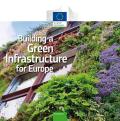
This book explores the environmental competitiveness of 133 countries around the world, presenting an index evaluation system to facilitate a comparative analysis of environmental competitiveness on a global scale. This is a new way to measure competitiveness in the light of the contradiction between world economic development and environmental protection. Global environmental competitiveness covers five aspects: the ecological environment, resources environment, environmental management, environmental impacts and environmental coordination. The authors use longitudinal study and horizontal analysis, combining qualitative and quantitative analysis methods so as to conduct an in-depth study of theoretical, empirical and methodological issues of global environmental competitiveness.This book will appeal to scholars and professionals with an interest in environmental issues and environmental competitiveness at a global level, as well as those with an interest in each of the 133 countries analyzed in this text, including environmental policy makers in those countries.
Produced by the United Nations Environment Programme (UNEP), in collaboration with Tongji University, this Chinese-language textbook aims to inform China’s economic structural transformation and its move towards ecological civilization. It involved 21 authors from 10 national and international institutions, covering the theoretical, sectoral and policy dimensions of green economy with a specific focus on key issues of relevance to China. This book is supported by illustrative examples tailored to a Chinese audience and provides a systematic understanding of the inclusive green economy concept and its linkage to the Chinese concept of Ecological Civilization.
Placing Indonesia’s economy onto a green and sustainable development pathway, as envisaged in the National Long Term Development Plan, will require a large mobilization of investment. Estimates of the annual investment needed are in the order of US$300‐530 billion, with a large portion of this investment needed in critical infrastructure, as well as environmentally sensitive areas such as agriculture, forestry, energy, mining and waste. In addition, financing for SMEs and industry is critical for creating jobs and boosting productivity.
To date, there is still limited understanding of the broad landscape of private green finance in Indonesia. While some research has been conducted on sustainable financing in the banking sector, there has been relatively little systematic research into the specific features and flows of green finance from private capital markets, even though Indonesia has reasonably sophisticated financial institutions and markets. This study is therefore intended to contribute to the exploration of the state of green investment in Indonesia within the wider economic and financial sector context.
Adequate, appropriate finance is crucial for sustainable development in the Asia-Pacific region. The United Nations Economic and Social Commission for Asia and the Pacific UN (ESCAP) estimates that the region needs to invest around US$2.5 trillion a year between 2013 and 2030 to achieve key sustainable development goals:
- US$500-800 billion to close gaps in education, health, employment, social protection and basic access to energy services.
- US$800-$900 billion for developing infrastructure for energy, transport, telecommunications and water and sanitation.
- US$500-800 billion for climate change mitigation and renewable energy.
This briefing has been produced by the UNEP Inquiry as a contribution to discussions at the Regional Consultation on Financing for Development in Asia and the Pacific which took place in Jakarta, Indonesia in April 2015. It draws on the Inquiry’s ongoing research, and country engagement in particularly focusing on the sustainable development, financial systems and actions to be conducted for the Asia and the Pacific region.
